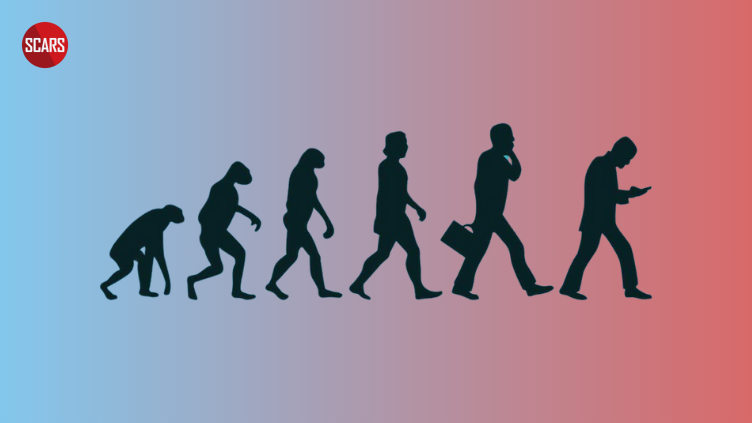Cognitive Overload
PLEASE NOTE: Psychology Clarification
The following specific modalities within the practice of psychology are restricted to psychologists appropriately trained in the use of such modalities:
Diagnosis: The diagnosis of mental, emotional, or brain disorders and related behaviors.
Psychoanalysis: Psychoanalysis is a type of therapy that focuses on helping individuals to understand and resolve unconscious conflicts.
Hypnosis: Hypnosis is a state of trance in which individuals are more susceptible to suggestion. It can be used to treat a variety of conditions, including anxiety, depression, and pain.
Biofeedback: Biofeedback is a type of therapy that teaches individuals to control their bodily functions, such as heart rate and blood pressure. It can be used to treat a variety of conditions, including stress, anxiety, and pain.
Behavioral analysis: Behavioral analysis is a type of therapy that focuses on changing individuals’ behaviors. It is often used to treat conditions such as autism and ADHD.
Neuropsychology: Neuropsychology is a type of psychology that focuses on the relationship between the brain and behavior. It is often used to assess and treat cognitive impairments caused by brain injuries or diseases.
SCARS and the members of the SCARS Team do not engage in any of the above modalities in relationship to scam victims. SCARS is not a mental healthcare provider and recognizes the importance of professionalism and separation between its work and that of the licensed practice of psychology.
SCARS is an educational provider of generalized self-help information that individuals can use for their own benefit to achieve their own goals related to emotional trauma. SCARS recommends that all scam victims see professional counselors or therapists to help them determine the suitability of any specific information or practices that may help them.
SCARS cannot diagnose or treat any individuals, nor can it state the effectiveness of any educational information that it may provide, regardless of its experience in interacting with traumatized scam victims over time. All information that SCARS provides is purely for general educational purposes to help scam victims become aware of and better understand the topics and to be able to dialog with their counselors or therapists.
It is important that all readers understand these distinctions and that they apply the information that SCARS may publish at their own risk, and should do so only after consulting a licensed psychologist or mental healthcare provider.
Opinions
The opinions of the author are not necessarily those of the Society of Citizens Against Relationship Scams Inc. The author is solely responsible for the content of their work. SCARS is protected under the Communications Decency Act (CDA) section 230 from liability.
Disclaimer:
SCARS IS A DIGITAL PUBLISHER AND DOES NOT OFFER HEALTH OR MEDICAL ADVICE, LEGAL ADVICE, FINANCIAL ADVICE, OR SERVICES THAT SCARS IS NOT LICENSED OR REGISTERED TO PERFORM.
IF YOU’RE FACING A MEDICAL EMERGENCY, CALL YOUR LOCAL EMERGENCY SERVICES IMMEDIATELY, OR VISIT THE NEAREST EMERGENCY ROOM OR URGENT CARE CENTER. YOU SHOULD CONSULT YOUR HEALTHCARE PROVIDER BEFORE FOLLOWING ANY MEDICALLY RELATED INFORMATION PRESENTED ON OUR PAGES.
ALWAYS CONSULT A LICENSED ATTORNEY FOR ANY ADVICE REGARDING LEGAL MATTERS.
A LICENSED FINANCIAL OR TAX PROFESSIONAL SHOULD BE CONSULTED BEFORE ACTING ON ANY INFORMATION RELATING TO YOUR PERSONAL FINANCES OR TAX-RELATED ISSUES AND INFORMATION.
SCARS IS NOT A PRIVATE INVESTIGATOR – WE DO NOT PROVIDE INVESTIGATIVE SERVICES FOR INDIVIDUALS OR BUSINESSES. ANY INVESTIGATIONS THAT SCARS MAY PERFORM IS NOT A SERVICE PROVIDED TO THIRD-PARTIES. INFORMATION REPORTED TO SCARS MAY BE FORWARDED TO LAW ENFORCEMENT AS SCARS SEE FIT AND APPROPRIATE.
This content and other material contained on the website, apps, newsletter, and products (“Content”), is general in nature and for informational purposes only and does not constitute medical, legal, or financial advice; the Content is not intended to be a substitute for licensed or regulated professional advice. Always consult your doctor or other qualified healthcare provider, lawyer, financial, or tax professional with any questions you may have regarding the educational information contained herein. SCARS makes no guarantees about the efficacy of information described on or in SCARS’ Content. The information contained is subject to change and is not intended to cover all possible situations or effects. SCARS does not recommend or endorse any specific professional or care provider, product, service, or other information that may be mentioned in SCARS’ websites, apps, and Content unless explicitly identified as such.
The disclaimers herein are provided on this page for ease of reference. These disclaimers supplement and are a part of SCARS’ website’s Terms of Use.
Legal Notices:
All original content is Copyright © 1991 – 2023 Society of Citizens Against Relationship Scams Inc. (Registered D.B.A SCARS) All Rights Reserved Worldwide & Webwide. Third-party copyrights acknowledge.
U.S. State of Florida Registration Nonprofit (Not for Profit) #N20000011978 [SCARS DBA Registered #G20000137918] – Learn more at www.AgainstScams.org
SCARS, SCARS|INTERNATIONAL, SCARS, SCARS|SUPPORT, SCARS, RSN, Romance Scams Now, SCARS|INTERNATION, SCARS|WORLDWIDE, SCARS|GLOBAL, SCARS, Society of Citizens Against Relationship Scams, Society of Citizens Against Romance Scams, SCARS|ANYSCAM, Project Anyscam, Anyscam, SCARS|GOFCH, GOFCH, SCARS|CHINA, SCARS|CDN, SCARS|UK, SCARS|LATINOAMERICA, SCARS|MEMBER, SCARS|VOLUNTEER, SCARS Cybercriminal Data Network, Cobalt Alert, Scam Victims Support Group, SCARS ANGELS, SCARS RANGERS, SCARS MARSHALLS, SCARS PARTNERS, are all trademarks of Society of Citizens Against Relationship Scams Inc., All Rights Reserved Worldwide
Contact the legal department for the Society of Citizens Against Relationship Scams Incorporated by email at legal@AgainstScams.org
![scars-institute[1]](https://scamsnow.com/wp-content/uploads/2025/04/scars-institute1.png)
SCARS Institute™ ScamsNOW Magazine
Society of Citizens Against Relationship Scams Inc. [SCARS]
is a publication of the Society of Citizens Against Relationship Scams Inc. [registered dba SCARS]
- Corporate Address: 9561 Fontainebleau Blvd., Suite 602, MIAMI, FL 33172
- Email: contact@AgainstScams.org
- Phone: (786) 835-7947
- Please Note: On-site and Phone Support Not Available
To use this website, You Must Read and Agree to the SCARS Legal Policies and Terms and Conditions
Find SCARS™ All Across The Web & Social Media
LEGAL STATEMENT
The unauthorized reproduction or distribution of this copyrighted work is illegal. Criminal copyright infringement, including infringement without monetary gain, is investigated by the FBI and is punishable by up to five years in federal prison and a fine of $250,000.
Website and All Original Content, Concepts, and Intellectual Property Copyright © 1995 – 2025 | All Rights Reserved | Third-party Copyrights Acknowledged | Some Images Reproduced As Legal Record Of Criminal Use By Third-parties | Evidence Photos Used To Report Their Use In Criminal Fraud | In Some Cases The Persons Pictured In Photos Are Victims Of Identity Theft Unless Otherwise Indicated
Scam Victim’s Stories are presented with the permission of the author.
SCARS Institute™, Society of Citizens Against Relationship Scams™, Society of Citizens Against Romance Scams™, SCARS|RSN™, Romance Scams Now™, SCARS|EDUCATION™, SCARS|SUPPORT™, SCARS|INTERNATIONAL™, SCARS|CHINA™, SCARS|UK™, SCARS|CANADA™, SCARS|LATINOAMERICA™, SCARS|MEMBERS™, SCARS|CDN™, Cybercrime Data Network™, AgainstScams™, Act AgainstScams™, Sludge Report™, Scam Victim Support Group™, RSN Steps™/SCARS Steps™, ScamCrime™, ScamsOnline™, Anyscam™, Cobalt Alert™, SCARS|GOFCH™, Global Online Fraud Clearinghouse™, SCARS|CERT™, RED BOOK™, BLUE BOOK™, GREEN BOOK™, Scam Organizer™ – in any form are trademarks of the Society of Citizens Against Relationship Scams Incorporated | Contact us at contact@AgainstScams.org for any issues about content displayed. visit To Learn More About SCARS Trademarks, Service Marks, and Indicia
![niprc1.png1_-150×1501-1[1]](https://scamsnow.com/wp-content/uploads/2025/04/niprc1.png1_-150x1501-11.webp)







